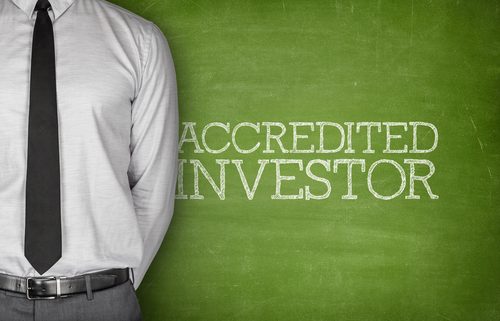What You Need to Know About Accredited Investors
There’s a good chance that you have encountered the term “accredited investor” while you were researching an alternative investment recently. Not all that long ago being an accredited investor seemed to be the equivalent of being a member of a secret society. Today, with newly relaxed regulations and an increased interest in alternative investments, accredited investors is no longer the financial industry’s best-kept secret.
For the most part, any securities that are registered with an authority such as the Securities and Exchange Commission are deemed to be suitable for most investors. Disclosures and regulation typically add a layer of protection for the average investors who are not able to absorb substantial financial losses or who do not have the technical knowledge to understand some of the offerings completely.
As an accredited investor, you supposedly have the financial wherewithal or the expertise to be able to navigate complicated and potentially risky investments. Accredited investors often put their money into assets that are not registered with a regulatory authority.
Who is an accredited investor?
- If you earned $200,000 as an individual or $300,000 as a married couple for the past two years, and you expect to make at least that amount this year, you will probably be considered an accredited investor.
- If you have a net worth of over 1 million dollars, excluding the value of your primary residence, you would also qualify.
- Experience or professional knowledge in unregistered securities can also judge you to be an accredited investor.
- A business can be an accredited investor if it has assets worth more than $5 million.
There are other ways to be seen as an accredited investor, but most individuals and companies that qualify will come under one of the above categories.
Why is the term “accredited investor” so significant?
The SEC is charged with protecting the average investor, and the accredited investor requirement helps them to ensure that those who invest in unregistered securities can withstand the financial hit if the value of their investment’s declines.
Large investors, such as banks and brokerage houses, have the resources to research the investments that they make for themselves and their customers. They also have the capital to file the reports that the SEC requires of all publicly traded firms.
Individual investors who meet the requirements to become an accredited investor have the financial means and experience to assume the risks of investing in unregistered securities and alternative investments that include real estate and venture capital.
Specific investments such as hedge funds, privately held entities, venture capital funds, and real estate syndicates, are sold only to accredited investors. The same goes for real estate crowdfunding in which online platforms act as facilitators for investors looking to pool their money to buy multi-family units, commercial property, or collections of single-family homes. Investing this way often provides the advantage of a lower entry price point and a venture into real estate that does not require caring for the physical property.
How can someone become an accredited investor?
There is no single authority that can bestow accredited investor status on you, so you will not have a certificate or appear on a master list of accredited investors. Instead, you will likely be required to submit paperwork–which could include tax forms, account statements, and balance sheets–to any seller of unregistered securities each time you invest. It’s up to the sellers to ensure your qualifications as an accredited investor before they allow you to invest.
Although achieving status as an accredited investor can be a protracted process, it could be worth the effort if your financial situation meets the criteria.
Even if you are not an accredited investor, Self-Directed IRAs offer a variety of investments
Give yourself the best chance for a prosperous retirement by taking advantage of a Self-Directed IRA. You do not need to be an accredited investor to reach for additional returns for your retirement portfolio. Your investment options can include real estate, precious metals, tax liens, private lending, private equity, and more.
Let us use our experience to help you
At American IRA, we work with Self-Directed IRAs every day. With our simplified process, you can quickly and efficiently take care of your investment transactions.
Interested in learning more about Self-Directed IRAs? Contact American IRA, LLC at 866-7500-IRA (472) for a free consultation. Download our free guides or visit us online at www.AmericanIRA.com.



